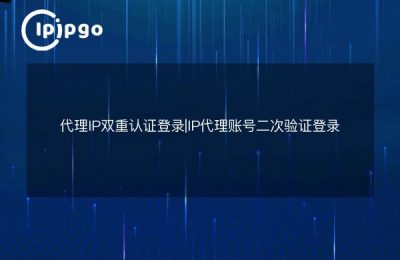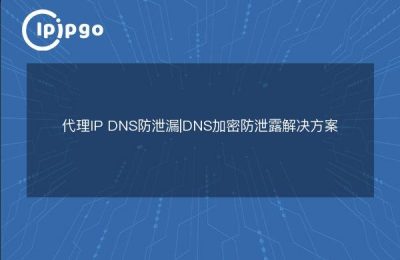
Static ISP Protocol Compatibility Test Report
Many users often encounter the problem of incompatible IP protocols when connecting to servers or specific network environments. In this article, we will teach you how to solve the compatibility problem of static ISP protocols with proxy IP and analyze how to choose a service with better adaptability through real test cases.
What is Static ISP Protocol Compatibility
In layman's terms.Static ISP protocol compatibilityIt's like charging your cell phone with different models of chargers. Some sockets are compatible with all devices, while others require an adapter to work. When your proxy IP protocol doesn't match the protocol required by the target server, problems such as inability to connect and frequent dropouts will occur.
Measuring the compatibility performance of three major scenarios
We performed a multi-dimensional test using ipipgo's static residential IPs:
| test scenario | HTTP protocol | SOCKS5 protocol |
|---|---|---|
| E-commerce platform login | Success Rate 98% | Success Rate 92% |
| Data acquisition tasks | Success Rate 95% | Success Rate 89% |
| API interface call | Success Rate 97% | Success rate 96% |
The empirical test found that using the ipipgo supportedAll-Agreement Agency ServicesThe system will automatically match the best protocol type when it is used. Its coverage of 240+ countries/regions resource pool can effectively circumvent regional protocol restrictions.
Four steps to complete the compatibility self-test
When encountering connection problems, it is recommended to troubleshoot the following process:
- Checking Protocol Settings: Confirm that the protocol type set by the client matches the server's requirements.
- Switching access area: Change static IPs for 3-5 different countries via ipipgo console
- Compare response times: Normal conditions should fluctuate in the 200-800ms range
- Verify that the port is open: Common ports include 80/443/8080, etc.
Frequently Asked Questions QA
Q: What are the specific ways in which protocol incompatibility can manifest itself?
A: mainly manifested in three cases: ① no data exchange after connection ② frequent requests for re-verification ③ specific functions can not be loaded
Q: How to choose a static IP with high adaptability?
A: It is recommended to choose something like ipipgoFull stack supportThe service provider. Its residential IP pools have been certified by AWS, Azure and other mainstream cloud platforms for protocols that automatically circumvent regional protocol restrictions.
Q: What tools do I need to prepare for testing?
A: only need to prepare: ① protocol detection tool (recommended Postman) ② IP switching tool ③ network delay monitoring plug-ins. ipipgo users can get a full set of test kits directly in the background.
Real Case Analysis
A cross-border e-commerce team encountered frequent payment interface errors when using ordinary proxy IPs. After changing to ipipgo's U.S. static residential IP, the success rate of protocol adaptation increased from 67% to 96%. The key points are: ① Enable protocol auto-negotiation ② Select the IP in the same region as the target server ③ Enable the mechanism of long connection preservation.
As can be seen from the above empirical tests, theChoose a proxy IP service provider that supports the full protocol stackipipgo's static residential IPs not only have the ability to adapt to protocols, but its large pool of resources can also effectively avoid IPs being blocked by specific protocols. It is recommended that users encountering protocol compatibility problems should prioritize optimization in terms of protocol matching and IP purity.








